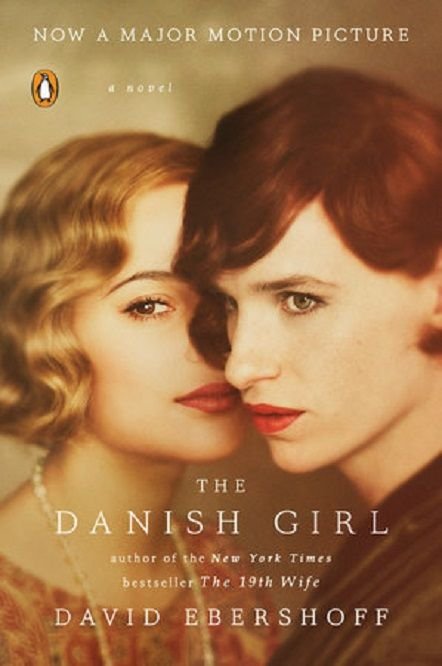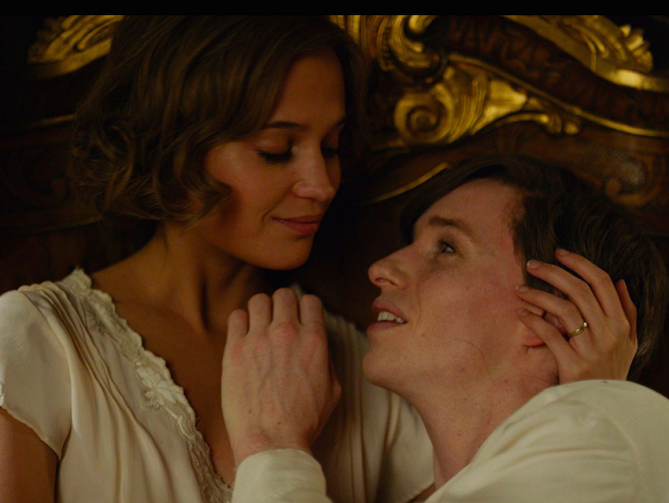Over the years, we have seen enough films depicting physical torture and torture. From the endless teen-mistresses, through the "stage with the chair" in the Casino Royal to the stylized prisms of Quentin Tarantino and Martin Scorsese in masterpieces such as "Revisior Dogs" and "Casino". "The Danish Girl" by Tom Hooper ("The King's Speech") can also refer to the "torture", but rather to the mental ones, similar to Rodrigo Cortes "Buried" and Flight Plan" by Robert Schventke. What is it like to be trapped in a sexual orientation that you do not feel like your own? Do you own a body you think you should not? And all this in the context of times (in the case of the 20s of the 20th century), in which a naked ankle is considered an act of audacity and indecency. Inspired by a true story, Oscar winner Eddie Redman ("Theory of Everything") and Alicia Vikander ("Ex Machina") are portrayed in a happily married husband and wife Bohemian Einar and Gerda Wegener living in Copenhagen in the 1920s century. Einar is a renowned landscaping artist, and Gerda is a must-see portraitist who is in the shadow of his mate. After agreeing to be a model in a portrait of Gerda, in which to put on women's clothes and shoes, strong feelings awaken in Einar. Engaged in a "small and harmless" game, Gerda allows her husband to explore the image of her alter ego "Lily" at more serious depths. An enormous mistake, which will cost the relationship in the future, because Einar is drawn into a spiral of confusion and uncertainty in its essence.

Eddy Redmain "takes" a second consecutive nomination for the most prestigious recognition of his profession for his bold performance of Einar / Lily. Unfortunately she could not convince me that I was looking at Lily's essence, but rather her false imitation, in which the deepening of her image was not at the same level as Stephen Hawking. His constant smiles and shy blinks, after a while, resemble the only tricks to recreate such a complex image (after several similar "crinkles" I relaxed in the chair in an attempt to snatch). The more psychological portrait of the protagonist / heroine and the more dramatic interpretation of his / her tortured soul would give the Danish Girl more density. Maybe Einar / Lilly is a strange and complex person with a labyrinth of emotions and mental states difficult to understand. But far more impressive for me was the exquisite and delightful Alicia Vikander, who after "Ex Machina" again enjoys a fantastic performance in the role of the desperate (psychological and sexual) Gerda. Together with Rooney Mara, the two actresses are perhaps the brightest talents of women in today's cinema. Vikander's range is exceptional, mastering the dramatic and complexity of her heroine in a way that no actresses of her generation would have done so skillfully. What does not give me peace is the fact that she is not nominated for the best female role, given that she has a far more obvious screen presence (the producers thought she would not have a great chance in this category). The other prospect of production is the very scenario that is too fragmented. The more straightforward narrative of history seemed to be more acceptable. Instead, the film relies heavily on cinematography and exquisite costumes. Are they really bohemians? Are they talented? They are supposed to have a free spirit but certainly suffer from the various obstacles they face. You do not have to have a great imagination to appreciate what a challenge it is to be trapped in the "wrong" body and to yearn to correct this "mistake" by visiting surgery. Dangers perceive physical hazards, psychological anguish, threats to the relationships that have been built so far, the fear of social ostracism, or a worse history that embodies all these elements to look implausible and irrelevant. Surely these details would give food for a more thorough and resonant drama.

Despite its dramatic potential, the story of Wegener is treated with such flatness by Tom Hooper and screenwriter Lucinda Cockson that you can not not yawn most of the time. Einar and Gerda do not bother to look for the causes and genesis of the problem as well as the reflective impact of their attitude. Partly because of this fact is not Einar's perception and perception of his own nature, nor of some insight into his condition. Similarly, we do not face the desperation of someone in a mental crisis except the battle with the immediate effect of Einar's sex change operations, which has been observed in the last half hour of the film. Well, at least, Hoop did not want to show us the whole process when he's already under the scalpel. There are so important things to tell, but the power of the narrative is drained by the lack of faith in the essence of the subject, and the constant distraction with aesthetics and visuals only makes us forget the true meaning of a relationship of souls and hearts. The complete abstraction of the production idea is due precisely to its brilliant aesthetics. Every frame is fabulous - scenes by Eve Stuart, Paco Delgado's costumes and Danny Cohen's acting work ("The King's Speech," "The Witches", "The Room") make a pompous and picturesque finish. Unfortunately, Tom Hooper exploits beauty - too many scenes are distractingly dominated by perfect dresses and art nouveau windows. Too tearful notes and their constant use of Alexander Deplase's wonderful music ("Grand Hotel Budapest", "King's Speech", "The Strange Case of Benjamin Button") dampen the emotional life of the performances.
"The Danish Girl" aims to engage in a struggle for self-realization, as we have seen in the well-adopted Hoopher's "The King's Speech" but drama here weighs more - the precise and calculated style of the director rather calls for strong feelings, emotions and mental states than to move them. In an attempt to "stitch" the story on the basis of the requirements for a prestigious costume drama, this decorative and unbreakable film removes the operating table from Lili Elbe's story, and in its place places a (quadruped) bitter coffee table on which it is placed alone beautiful lace.
I have to say that this movie really got to me, it had me really thinking after I watched it. I could really feel the viewpoint of both of the main characters in what was truly a unique situation.
You got a 5.51% upvote from @postpromoter courtesy of @godflesh!
Want to promote your posts too? Check out the Steem Bot Tracker website for more info. If you would like to support the development of @postpromoter and the bot tracker please vote for @yabapmatt for witness!